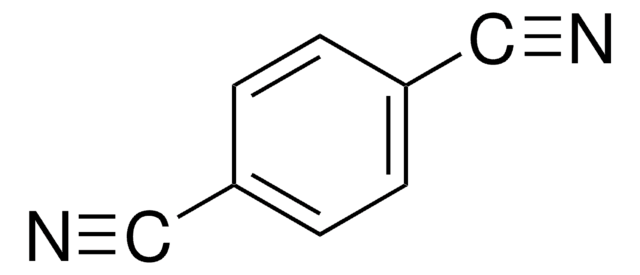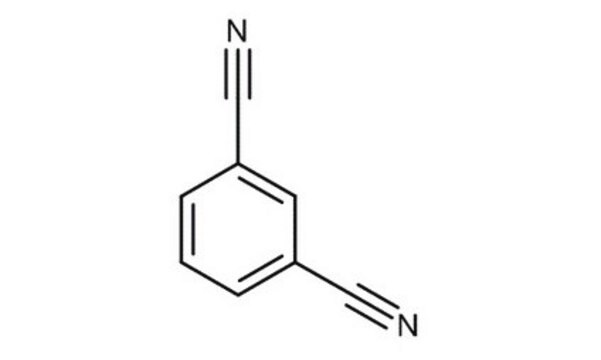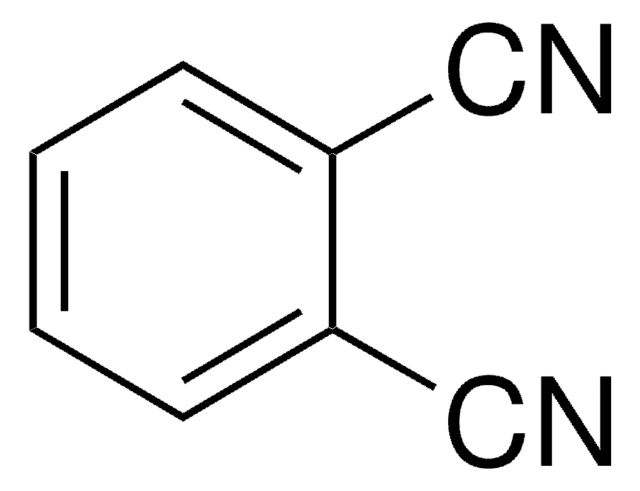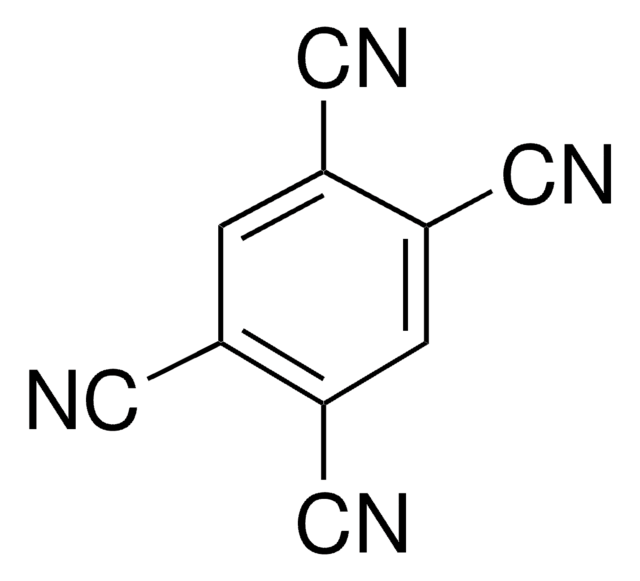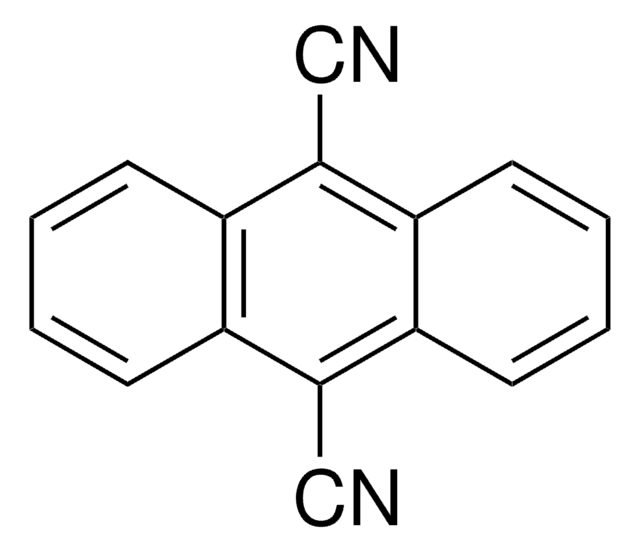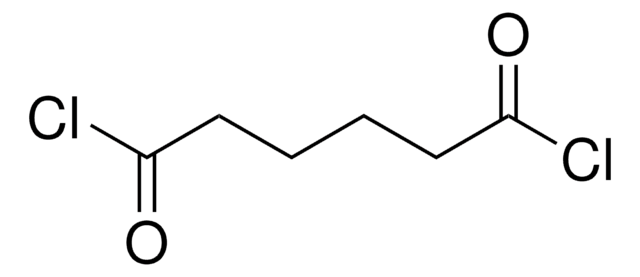145858
1,3-Dicyanobenzene
98%
Synonym(s):
Isophthalodinitrile, Isophthalonitrile
Sign Into View Organizational & Contract Pricing
All Photos(2)
About This Item
Linear Formula:
C6H4(CN)2
CAS Number:
Molecular Weight:
128.13
Beilstein:
1072209
EC Number:
MDL number:
UNSPSC Code:
12352100
PubChem Substance ID:
NACRES:
NA.22
Recommended Products
Quality Level
Assay
98%
form
liquid
mp
163-165 °C (lit.)
functional group
nitrile
SMILES string
N#Cc1cccc(c1)C#N
InChI
1S/C8H4N2/c9-5-7-2-1-3-8(4-7)6-10/h1-4H
InChI key
LAQPNDIUHRHNCV-UHFFFAOYSA-N
Looking for similar products? Visit Product Comparison Guide
Application
1,3-Dicyanobenzene was used in the synthesis of oxazolines and 1,3-bis-(4,4-dimethyl-2-oxazolinyl)benzene.
Signal Word
Warning
Hazard Statements
Precautionary Statements
Hazard Classifications
Acute Tox. 4 Oral
Storage Class Code
11 - Combustible Solids
WGK
WGK 1
Flash Point(F)
Not applicable
Flash Point(C)
Not applicable
Personal Protective Equipment
dust mask type N95 (US), Eyeshields, Gloves
Choose from one of the most recent versions:
Already Own This Product?
Find documentation for the products that you have recently purchased in the Document Library.
Customers Also Viewed
Luo Mei et al.
Journal of combinatorial chemistry, 11(2), 220-227 (2009-01-14)
A class of modular oxazolines and their derivatives 1-5 were synthesized with moderate to excellent yields using a simple one-pot method; 4 x 3 bis-oxazolines were obtained, as expected, from each of the three reactions of 1,4-dicyanobenzene, 1,3-dicyanobenzene, and 1,2-dicyanobenzene
A SIMPLE LARGE SCALE SYNTHESIS OF 1, 3-BIS-(4, 4-DIMETHYL-2-OXAZOLINYL) BENZENE 1*.
Button KM, et al.
Synthetic Communications, 32(3), 363-368 (2002)
Glenn R Masson et al.
The Biochemical journal, 474(11), 1867-1877 (2017-04-07)
Until recently, one of the major limitations of hydrogen/deuterium exchange mass spectrometry (HDX-MS) was the peptide-level resolution afforded by proteolytic digestion. This limitation can be selectively overcome through the use of electron-transfer dissociation to fragment peptides in a manner that
Our team of scientists has experience in all areas of research including Life Science, Material Science, Chemical Synthesis, Chromatography, Analytical and many others.
Contact Technical Service